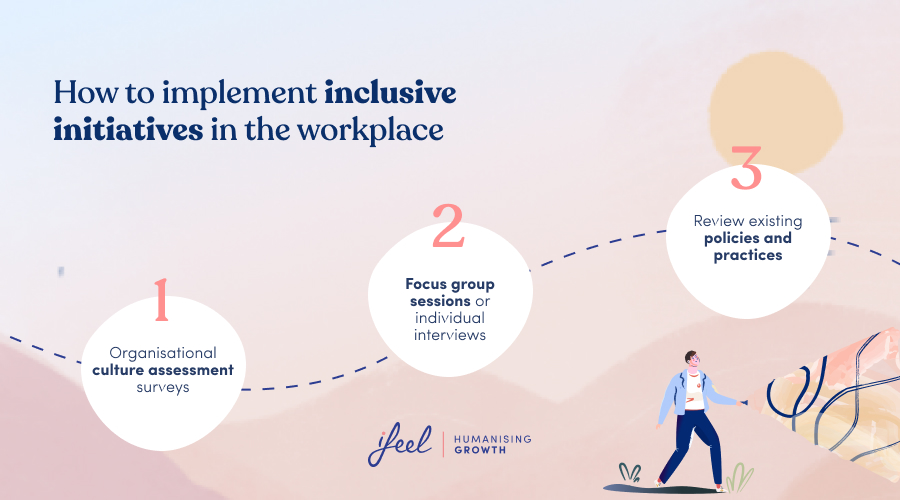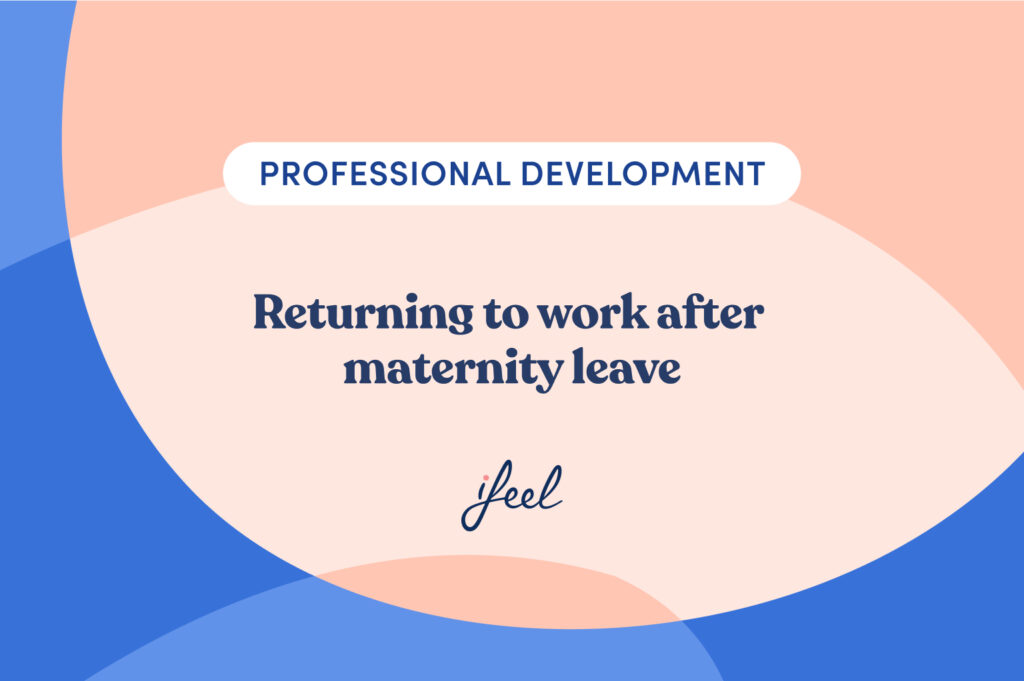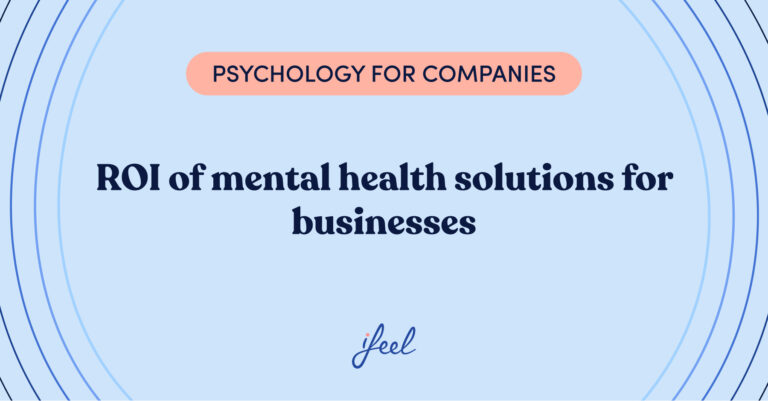Returning to work after maternity leave can be a daunting journey for new mothers and a strategic consideration for enterprise organisations. This transition period is critical, not only for the well-being of returning employees, but also for the overall health of the organisation. Enterprises that actively support mothers during this time can significantly increase employee morale and retention.
As a decision-maker, what steps are you taking to ease women’s return to work after maternity leave?
Understanding the challenges of returning to work after maternity leave
The journey of returning to work after maternity leave often comes with a unique set of challenges. New mothers may face emotional hurdles like attachment anxiety and practical issues such as securing reliable childcare. Studies indicate that more than 80% of working mothers in the UK experienced trouble returning to work after maternity leave. To address these concerns effectively is to pave the way for smoother transitions and retention.
Challenges faced by women returning to work
For women, returning to work after maternity leave involves navigating a complex landscape of emotional, professional, and societal challenges. Here are some of the key difficulties they face:
Emotional challenges:
- Separation anxiety from their newborns.
- Feelings of guilt or inadequacy about leaving their child.
Professional concerns:
- Fear of being left behind in their career progression.
- Pressure to quickly reintegrate and perform at pre-leave levels.
Societal pressures:
- Implicit bias or stereotypes questioning their career commitment.
- Navigating workplace dynamics that may not fully support family responsibilities.
Discrimination and bias:
- The Equality and Human Rights Commission in the UK reports that around 77% of mothers experience negative or discriminatory attitudes during pregnancy, maternity leave, and upon returning to work.
These challenges underscore the need for robust organisational support systems that not only facilitate a smooth transition but also actively counteract these biases and pressures.
Strategic measures for supporting new mothers
Supporting new mothers as they transition back to work requires thoughtful and comprehensive strategies. These strategies should aim to alleviate the challenges faced by new parents and ensure that they feel welcomed and valued as they reintegrate into the workplace. These measures not only facilitate a smoother transition but also reinforce a culture of inclusivity and support, which can be pivotal in retaining talent.
1. Adaptable work schedules: Introducing flexible schedules or remote work options can significantly ease the transition for those returning. Such adaptability supports new mothers in balancing their professional and personal roles more comfortably.
2. Staggered return initiatives: Gradually easing new mothers back into the workplace by offering part-time work initially can promote a smoother adjustment period.
3. Peer support systems: Creating networks where returning parents can connect and share insights can provide emotional and practical support that is invaluable during this transition.
4. Childcare resources: Offering assistance with childcare arrangements, whether through a benefits strategy or partnerships, helps alleviate one of the most pressing concerns for working parents.
5. Skills refresh programs: Providing training sessions to update returning employees on new developments ensures they feel competent and ready to re-engage with their roles.

Comprehensive benefits of supporting returning employees
Investing in robust support systems for employees returning to work after maternity leave offers numerous advantages. These benefits extend beyond the individual to impact the broader organisational culture and efficiency. By providing a supportive framework, companies can foster higher retention rates, improved employee well-being, and enhanced job satisfaction. Additionally, a positive reputation as a family-friendly employer can attract diverse talent, further enriching the organisational environment. Understanding and articulating these benefits can help HR and leadership teams advocate for the necessary resources and policies to support returning employees.
| Benefit | Explanation |
|---|---|
| Higher retention rates | Effective transition support results in long-term loyalty and reduced hiring costs. |
| Enhanced employee well-being | Lower stress levels lead to healthier, more productive employees. |
| Greater job satisfaction | Feeling supported increases satisfaction and commitment to the company. |
| Inclusive work environment | Supportive policies contribute to a culture of inclusivity and understanding. |
| Stronger employer reputation | Companies that support returning mothers improve their public and employer brand image. |
Global rerspectives on supporting returning mothers

Supporting employees returning to work after maternity leave is handled differently across the globe, influenced by cultural norms and legislative frameworks.
Scandinavian countries are often highlighted for their extensive parental leave policies, which facilitate an easier transition for new mothers. In the UK, there is a growing emphasis on flexible working arrangements and shared parental leave, reflecting a broader trend toward supporting family-friendly workplace practices. Understanding these international perspectives can offer valuable insights and best practices that organisations can adapt to fit their unique contexts, helping them better support their workforce.
Supporting Returning Mothers: A Comparative View
| Country | Key policies | Impact on retention |
|---|---|---|
| Norway | Extensive parental leave, staggered returns | High retention, reduced transition stress |
| UK | Shared parental leave, flexible options | Increased satisfaction and retention |
| US | Employer-dependent policies | Varied strategies to support re-entry |
Key considerations for HR managers
In managing the transition for employees returning to work after maternity leave, HR managers play a pivotal role in shaping the experience of returning employees. This transition is not merely about facilitating a return to routine; it’s about actively crafting an environment that acknowledges the profound changes new parents have undergone. HR managers should be proactive in developing comprehensive strategies that align with both organisational goals and the personal needs of employees. This involves a deep understanding of the challenges faced by returning mothers and the implementation of initiatives that offer real support and flexibility.
Recommendations for HR meaders
1. Conduct comprehensive needs assessments: Regularly survey returning employees to identify specific challenges and needs.
2. Develop targeted support programs: Create policies that address the diverse needs of employees returning to work after maternity leave.
3. Encourage open communication: Foster an environment where employees feel comfortable sharing feedback and suggestions.
4. Continuous monitoring and improvement: Evaluate the effectiveness of return-to-work programs and refine them based on feedback.

Considerations for decision-makers:
- What specific needs do employees have when returning from maternity leave?
- How can we make our support systems more effective and inclusive?
- What metrics can we use to assess the success of our initiatives?
The Leadership Lens🔎
Leadership plays a crucial role in setting the tone for how organisations support employees returning to work after maternity leave. It’s vital for leaders to foster an environment where returning mothers feel valued and supported. By promoting empathy and understanding, leaders can help create a workplace culture that prioritises well-being and inclusivity. This commitment from the top can inspire confidence and trust among employees, encouraging them to stay engaged and committed to the organisation. Regular communication and check-ins are essential to understanding and addressing the needs of returning employees effectively.
Mental health: the biggest business challenge of our time
At ifeel, we recognise the importance of managing the transition returning to work after maternity leave as a cornerstone of employee well-being and organisational success. For HR leaders and decision-makers, understanding the need for bespoke support solutions is crucial to meeting the challenges of an evolving workforce.
To help in this process, our clinical team provides leading companies in their sector with a dynamic, scalable and fully personalised solution, powered by AI. We have a strategy and approach based on key data to help organisations with a global presence address one of the biggest business challenges of our time: mental health at work.
This solution offers employees a mental health care service structured at different levels depending on their needs at any given time. Discover our Resources section where you will find different materials, such as webinars, podcasts, guides for human resources on current topics and interviews with leaders of large organisations.
Data-driven methodology
Our mental health solution for enterprises employs evidence-based practices and innovative methods, backed by the latest research and a network of over 600 mental health professionals. Would you like to know more about our Clinical Research Department? Don’t forget to visit this section to stay informed about the latest studies and research in mental health in corporate environments.
We hope you found this article on returning to work after maternity leave interesting.
If you would like more information about the ROI of our bespoke mental health solution for enterprises, simply request it here and our team will make a calculation adapted to the specific characteristics of your enterprise.











